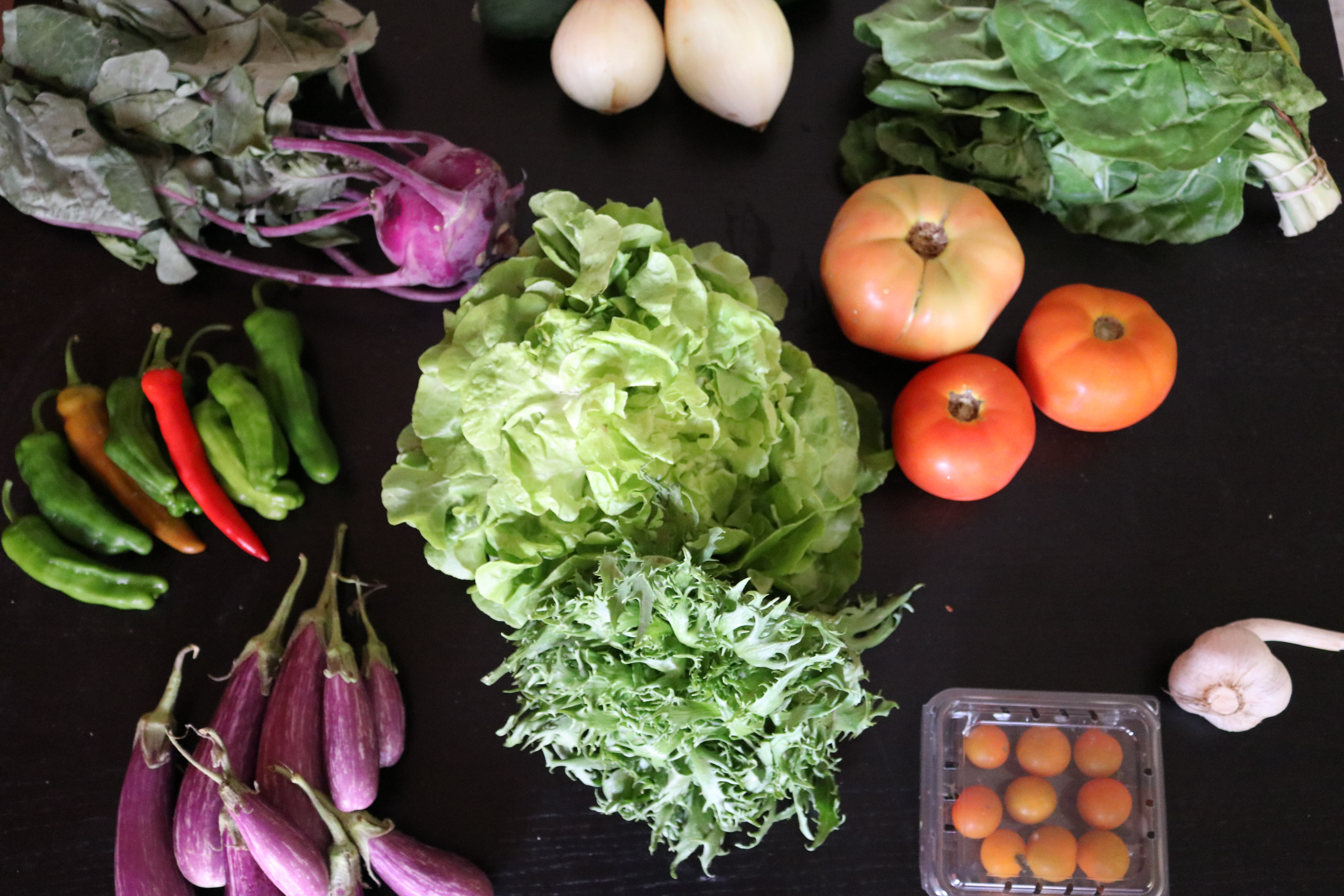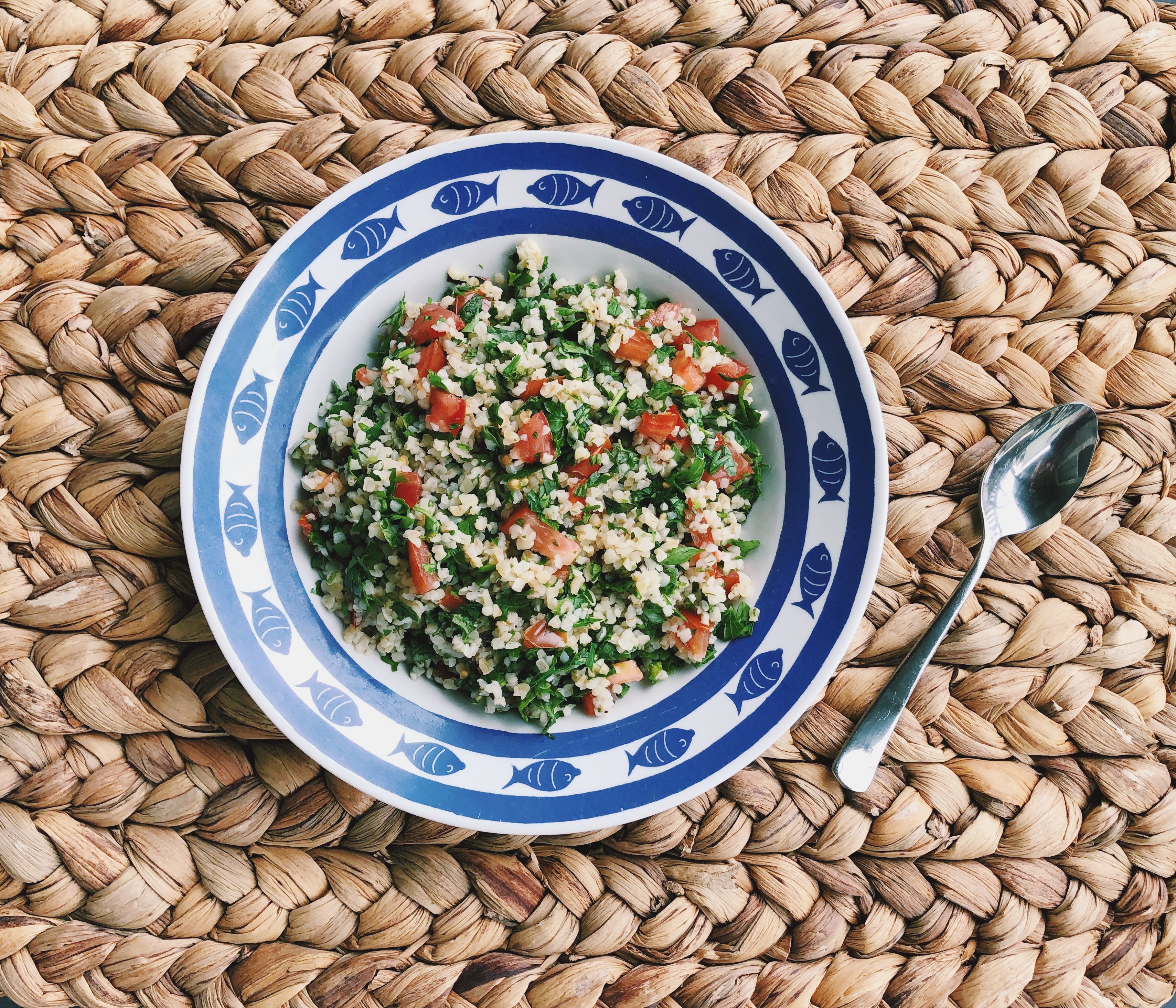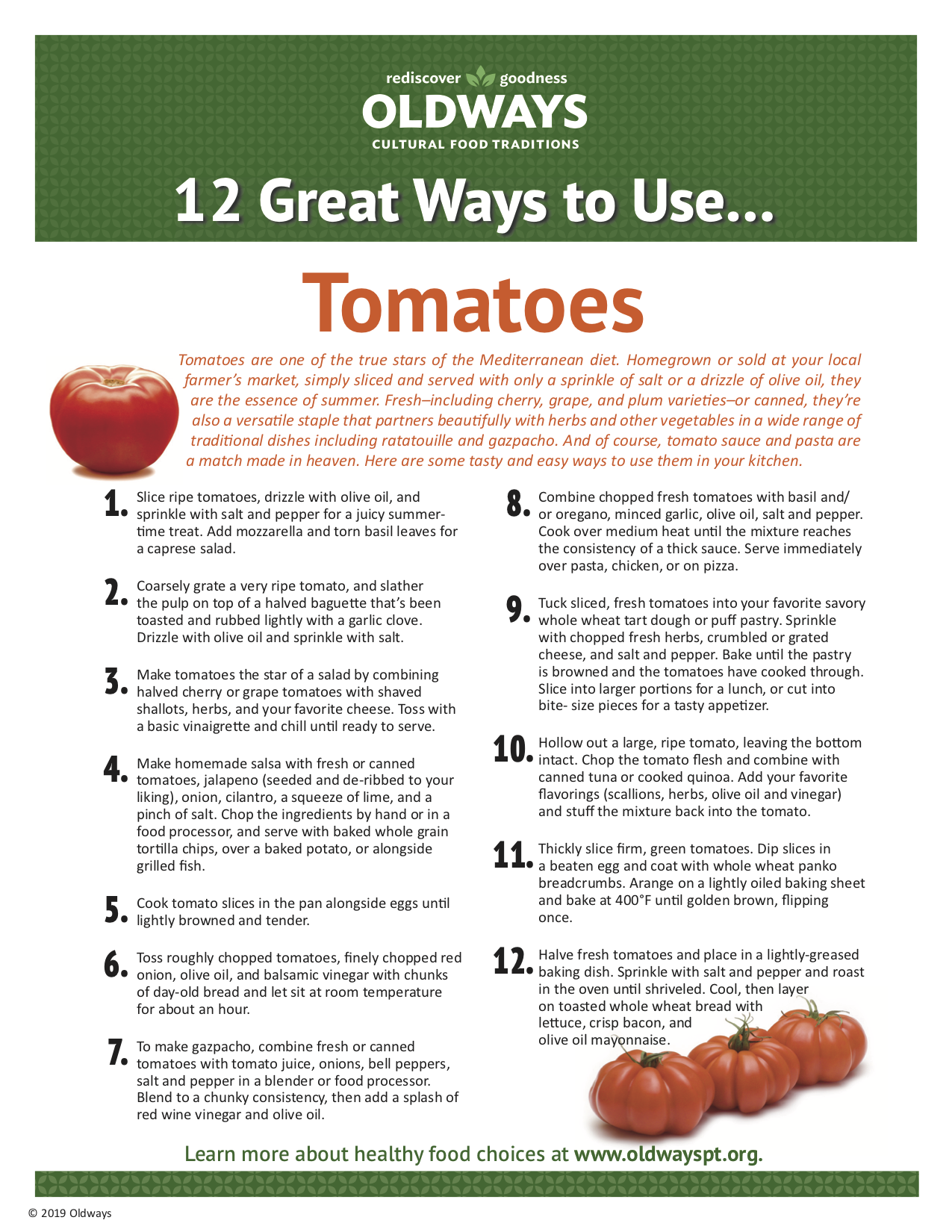Share This
Easy, fresh, vegetable-centric dishes are a hallmark of the Mediterranean Diet, and summer is the best time to celebrate them! Whether they are raw, roasted, or grilled in salads, served as sides, or as the main dish, seasonal vegetables present endless opportunities to enjoy vibrant Mediterranean flavors, while packing in essential nutrients and antioxidants.
Vegetables most common to the Mediterranean Diet include artichokes, arugula, beets, broccoli, brussels sprouts, cabbage, eggplant, carrots, celery, cucumber, fennel, kale, lettuce, mushrooms, mustard, okra, onions, peas, peppers, spinach, and zucchini.
With just a drizzle of olive oil and a sprinkle of sea salt and fresh herbs, the subtle sweetness and undeniable freshness of summer vegetables are wonderfully enhanced. This is the benefit of eating the Mediterranean way—with the right ingredients, you can effortlessly whip up dishes that celebrate and accentuate flavors of the summer bounty.
First, raw vegetables such as crisp cucumbers, celery, carrots, or cabbage serve as easy and delectable additions to salads, sandwiches, and spreads. For example, the authentic Greek salad, or horiatiki salata, is a refreshing and healthy mixture of cucumbers, tomatoes, olives, onions, and feta tossed together with extra virgin olive oil, sea salt, and oregano. For a simple, light, and easy summer dish full of whole grains, mix together Israeli couscous, raw squash and zucchini, cherry tomatoes, feta, pine nuts, basil, and lemon and olive oil. The Levantine tabbouleh salad likewise takes advantage of fresh, raw vegetables by combining finely chopped parsley, tomatoes, onions, and mint and seasoning with olive oil, lemon juice, sea salt, and pepper.
While raw vegetables certainly play a fundamental role in the Mediterranean Diet, many of the Mediterranean’s most popular and beloved dishes include vegetables that have been roasted, grilled, boiled, or sautéed to tender perfection.
Horta, a Greek catch-all term for boiled greens, is a staple. Horta refers to all types of wild greens, including amaranth, dandelion, spinach, beet greens, chard, sorrel, and mustard greens. Packed with important nutrients such as iron, these greens are typically boiled until tender and topped with olive oil, lemon, and salt and pepper. An easy and nutritious side dish, horta finds its way into just about any Greek meal.
The French ratatouille perfectly encapsulates the Mediterranean ideal of saturating simple and healthy ingredients with olive oil and fresh herbs to highlight the produce’s natural sweetness. In this Provencal dish, summer zucchini, eggplant, green peppers, tomatoes, capers, onion, and garlic are chopped and sautéed in extra virgin olive oil and topped with herbes de Provence, salt, pepper, and fresh basil leaves. A perfect example of transforming common, humble ingredients into a flavorful, hearty dish, ratatouille has emerged as a highly celebrated staple of the Mediterranean.
Many countries in the Mediterranean take their own unique spins on vegetable stews. In the Catalonian version, commonly known as samfaina, the vegetables are simmered until they reach a jam-like consistency. In the Turkish version known as turlu, potatoes, okra, and green beans are included in the recipe. For the Greek briam, also a cousin to ratatouille, potatoes, zucchini, red onions, and tomatoes are dowsed in olive oil and topped with oregano, garlic, and parsley. Served with bread or a bed of rice to absorb all the flavor, briam is a great way to incorporate more vegetables into your diet.
For something slightly sweeter, turn to Morocco’s classic, one-pot vegetable tagine that pleasantly balances sweet and savory flavors. Carrots, squash, chickpeas, potatoes, tomatoes, onions, and garlic are simmered in a traditional clay pot, lightly sweetened with apricots or prunes, and topped with harissa and lemon juice.
With the right ingredients—seasonal vegetables, fresh herbs, and olive oil—your vegetable-centric dish will never fall short of delicious. The Mediterranean Diet shows us how to accentuate produce’s natural flavor—guaranteeing a crowd-pleasing, well-balanced dish!
Want biweekly Med Diet information and recipes in your Inbox? Sign up for our Fresh Fridays newsletter by clicking the Subscribe button at the bottom of this page!
Join the Make Every Day Mediterranean Club Facebook group for additional information and support.




Comments
Add a Comment